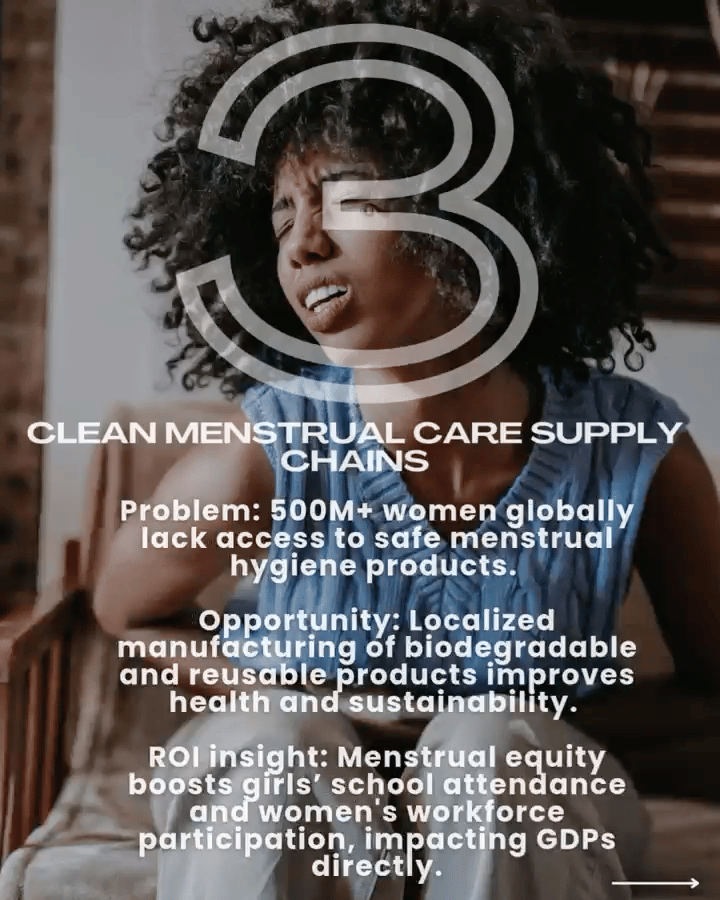- Risk Ready FORMERLY The Digital Doc: Exploring Health Tech Innovation
- Posts
- Fiscally Pro-Female: How Women’s Health Innovation Could Drive the Next Economic Boom
Fiscally Pro-Female: How Women’s Health Innovation Could Drive the Next Economic Boom

In the late 1990s, cardiovascular disease was widely considered a "man's problem." Decades of research, clinical trials, and diagnostic algorithms were designed around male bodies, while women weren't even allowed to participate in clinical trials until the 1990s. Women experiencing heart attacks were misdiagnosed or untreated at alarmingly high rates, costing the United States economy more than $100 billion annually in lost productivity, excess healthcare costs, and premature deaths. One pivotal study found that women under 55 were seven times more likely than men to be misdiagnosed and sent home from the ER during a heart attack. Even today, many diagnostic tools and AI-driven systems still fail to account for gender differences in symptoms, hormone cycles, and risk factors. When datasets and innovation pipelines reflect historical bias, the risks compound at scale, leaving understudied and poorly resources groups, like women, to suffer the consequences. This month, the Gates Foundation announced a $2.5 billion investment to accelerate research and development in women's health by 2030 to support more than 40 innovations in five long-neglected areas, with a focus on women in low and middle income countries. This is just a small step forward that could change the trajectory for the advancement of science and innovation for women for decades to come.
Despite women accounting for 49.7% of the global population and more than 40% of the workforce, yet only about 1% of healthcare research funding addresses conditions that uniquely or disproportionately affect them. No one invests in women and the outcomes show it. Women founders aren't being backed at the same rate of men with those from other minority populations being funded even less.Hopefully, this announcement from the Gates Foundation will prompt others to pay attention. If it doesn't, consequences will continue to rise.
There are seen and unseen consequences in the workplace. Time is lost to menstrual pain, postpartum recovery, hysterectomies, and other major procedures. Chronic fatigue syndrome, autoimmune flares, and unmanaged perimenopausal symptoms reduce performance, limit advancement, and contribute to attrition in leadership roles. These are recurring and predictable realities that carry measurable costs for organizations and economies. Being fiscally pro-female could pay off.
Not only could it pay off at work. Women are more than their vaginas. Progress in women's health must extend beyond reproductive care. It should address the full spectrum of conditions that influence daily life, career longevity, and long-term health. This requires targeted research, data that reflects diverse populations, and effective pathways for bringing new solutions to market. Areas of focus must include autoimmune disease, pain bias, environmental toxin exposure, cardiovascular health, and midlife care needs that remain overlooked. As we dive more deeply into the research, we must highlight the current advancements that have been occurring through the recent femtech boom. Many companies have come forward, but don't have the funding and market spotlight that male dominated organizations have. How many viagra companies have you seen pop up in the last 3 years?
Now that the Gates Foundation's commitment has set a higher benchmark for action, who else will step up. The challenge now is ensuring that this momentum is sustained and that innovations reach the women who need them most. Neglecting the health needs of half the population is a failure that weakens the drive to improve population health, hopefully the reason that most of you reading this newsletter are committed to healthcare. Closing that gap is essential to building a healthcare system that is resilient, equitable, and capable of meeting the demands of the future. The future is female...if we fund it.
MenstruAI Is Here: When Pads Become Personalized Healthcare Devices
Researchers at the University of Pennsylvania have developed MenstruAI, an innovation that transforms an ordinary sanitary pad into a powerful health monitoring tool. Using a paper-based lateral flow assay, the pad can detect biomarkers in menstrual blood that signal infection, inflammation, cancer, and endometriosis. This biological resource, long overlooked in health research, offers a non-invasive and accurate view of women's health.
Why It Matters: Effortless Testing with no extra steps. Adds additional mechanisms to obtain labs in the absence of needing a skilled phlebotomist. Use as you normally would and the pad collects and analyzes samples automatically.
Comprehensive Detection: Identifies key biomarkers including CRP, CEA, and CA-125, linked to multiple serious conditions.
Smart Integration: A companion app walks users through setup, delivers instant results, and securely shares data with healthcare providers. Machine learning boosts accuracy and reliability.
Comfort and Precision: Soft-silicon prototypes improve wearability and ensure consistent sampling.
Global Accessibility: Meets WHO's ASSURED criteria, making it practical for use in both advanced healthcare systems and resource-limited settings.
MenstruAI could redefine how we approach women's health diagnostics by enabling early detection and personalized monitoring via a mechanism that is not typically utilized in the current healthcare landscape. It expands access to critical health insights for women everywhere leading to potentially saving lives, reducing costs, and closing long-standing gaps in care. Large-scale validation is the next step toward bringing it into everyday use.
Click HERE to read the study in the Advanced Science Journal.







The biggest risk in women's health innovation is building blind spots into your products. DRCS helps you design solutions that are regulation-ready, trusted by the market, and positioned for rapid adoption. Schedule a call at https://calendly.com/drerkeda/drcs or email us at [email protected] to see how we can support you.
